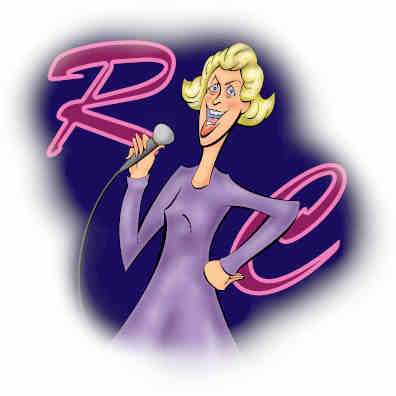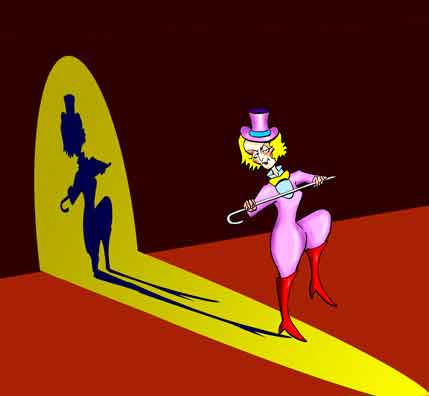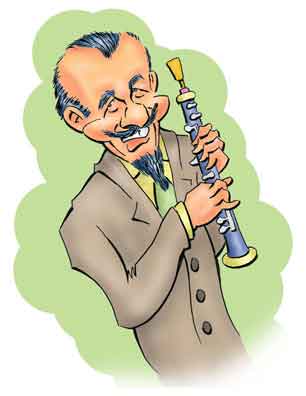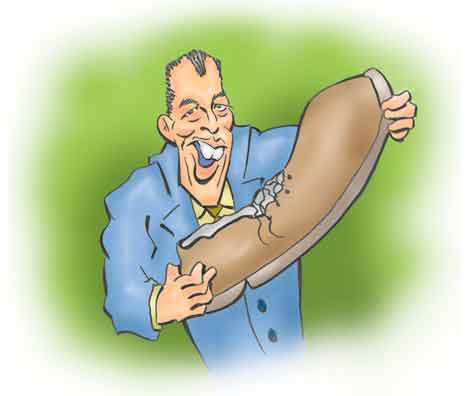Rosemary Clooney

(Click to Zoom In and Out)
You know you've reached the pinnacle of fame when you're mentioned in literature.
Not only mentioned in literature but in one of the literary biggest sellers.
And which features one of the most popular literary characters in the pre-and-post Millennium.
And in one of those famous novels, the main character had been leading a most non-abstemious lifestyle which included smoking sixty cigarettes and drinking half a bottle of spirits a day. But as his job required him be in top physical shape, he had to take a "rest cure" at a health clinic near Washington. As he gets into the cab, he begins talking to the driver about the clinic. He learns that the locals consider them a bunch of crackpots as they charge them "twenty quid for giving you nothing but hot water to eat". But the driver later admits when he was picking the clients up after their cure it seems that the regimen of careful diet and various treatments wakes the "old goats" up and gets them "wanting to cut the mustard again".
"If you know that song by Rosemary Clooney," he added1.
Footnote
The mention of James taking a rest cure at a health clinic - called "Shrublands" - near Washington isn't an error. Washington is a place name of several towns in the UK. But Shrublands was near the small village of Washington in West Sussex, about five miles north of Worthing which is on the south coast of England. However, James probably took the train to Brighton and picked up the cab to Shrublands which would have been about 10 miles to the northeast.
Yep. Rosemary is mentioned in the James Bond novel Thunderball.

Marlene
The song "Too Old to Cut the Mustard" was really a duet by Rosemary and Marlene Dietrich. Originally a country and western song "Too Old to Cut the Mustard" was popular in the 1950's and recorded by a number of artists including the composer, Bill Carlisle, and later by Ernest Tubb and Red Foley. You'll still hear it occasionally sung today.

Mitch
Rosemary began recording in the 1940's following World War II. Her first really big hit, though, was a song she didn't even want to sing. Mitch Miller - later the famous "sing-along" man - was a producer at Columbia records and said Rosemary should record "Come On-a My House" which was based on an Armenian folk song. Rosemary thought that the song, which was sung with a contrived, even stereotypical accent, was "just plain silly". But after much argument - during which Mitch threatened to give her the boot - Rosemary gave in. The record became a hit and Rosemary became a star and - as we see - was mentioned in one of the biggest selling works of English literature.

Ed
Rosemary appeared as a guest on a number of then popular but now defunct television variety shows. The biggest program of the 1950's and 60's was The Ed Sullivan Show. Known for his unique style of speaking, Ed had so many guests that it was hard to keep them straight. He once announced the impressionist Rich Little as "the young impersonator from Canada, a fine youngster, welcome out here - Buddy Rich!" When Rosemary appeared in 1955 she was about as famous as anyone could be. In one telling Ed gave her a big build up as "one of America's really fine singers, let's hear it for -" and drew a blank. So he ended up the introduction with "Come on out here, honey!"
As some Hollywood buffs know, Rosemary also had a nephew who went into show business. He did pretty good. Can't remember his name, though. George, maybe.
References
Thunderball, Ian Fleming, New American Library, 1961.
"Too Old To Cut the Mustard", Rosemary Clooney (singer), Marlene Dietrich (singer), Bill Carlisle (composer), Columbia, 1952, Discogs.
"Tonight Show", Johnny Carson (host), Rich Little (guest), Helen Reddy (guest), Ed McMahon (guest), Doc Severinsen (band leader), November 30, 1973, Internet Movie Data Base.
"The Ed Sullivan Show", Ed Sullivan (host), Rosemary Clooney (guest), Dave Brubeck (guest), Tony Randall (guest), Andre Kostelanetz (guest), Edward R. Murrow (guest), October 16, 1955, Internet Movie Data Base.